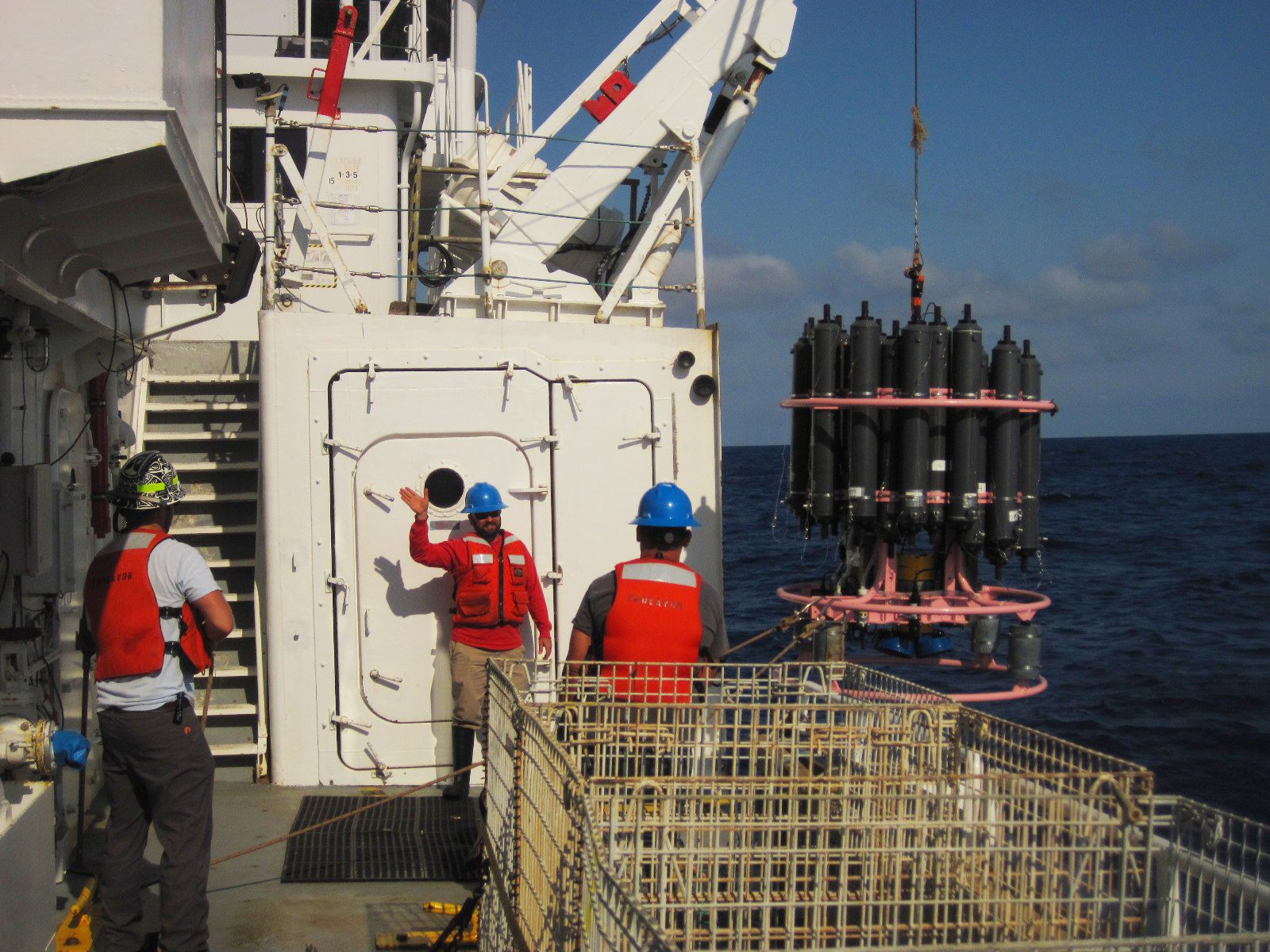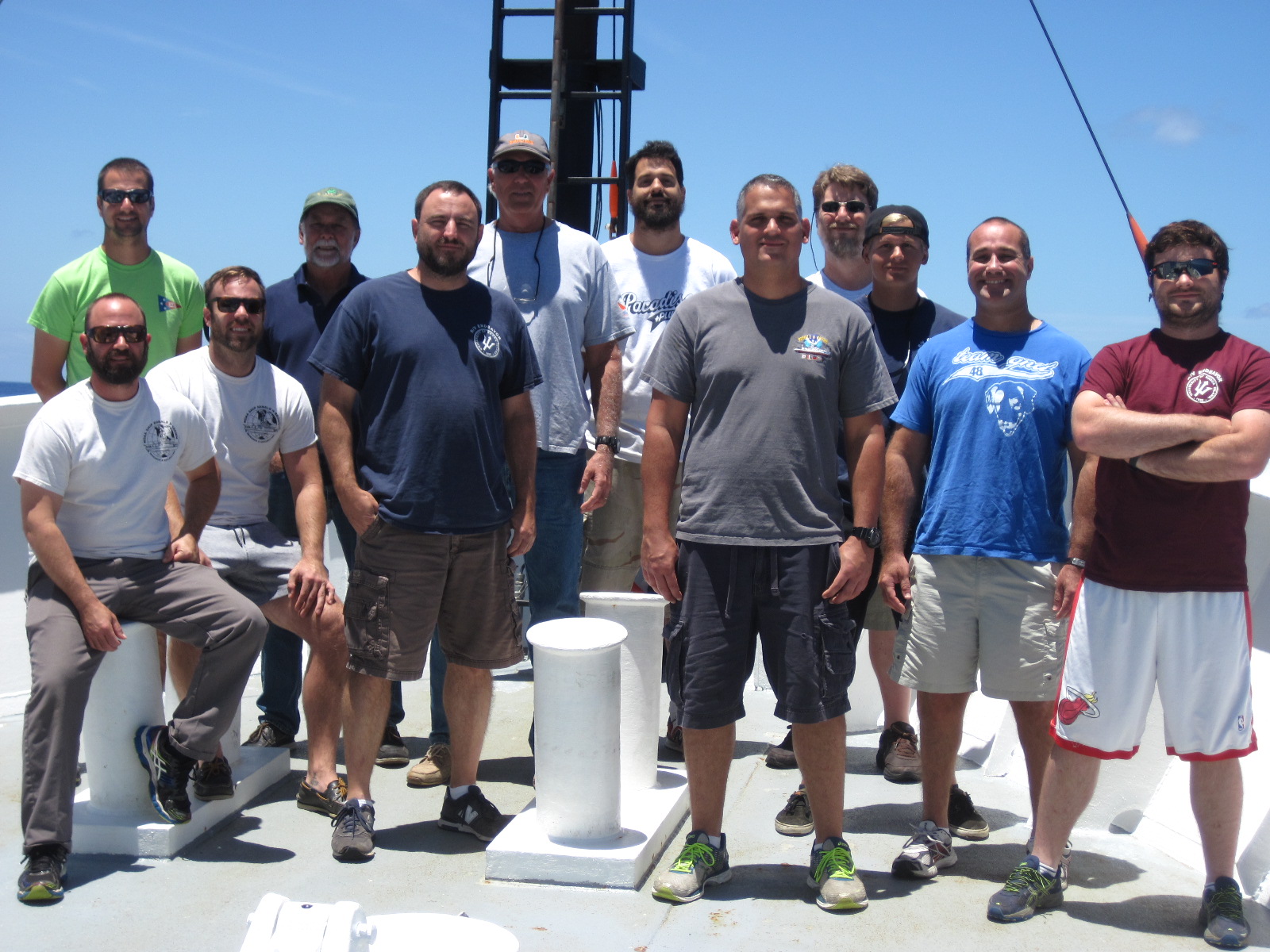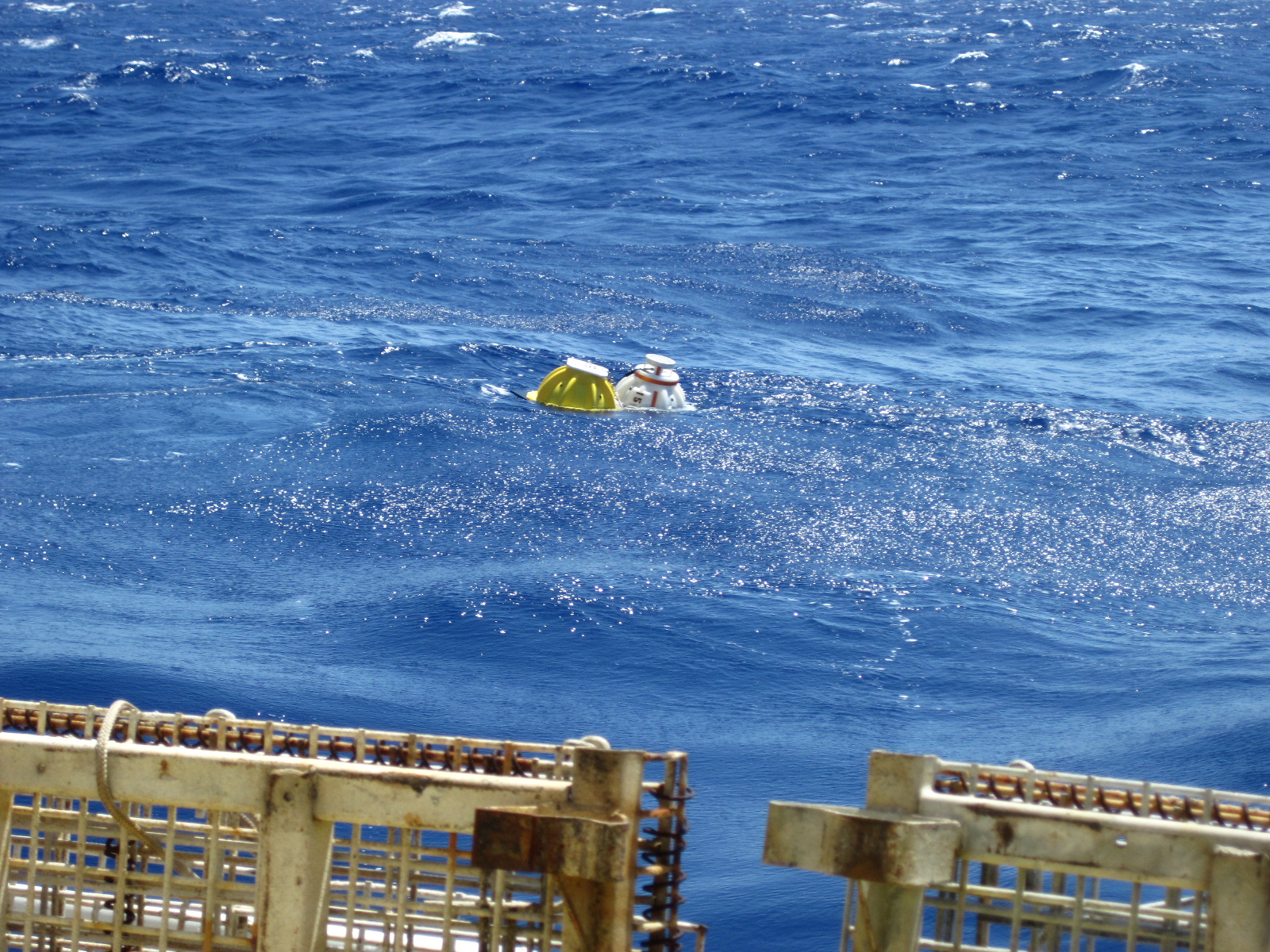Western Boundary Time Series Cruise Extends Decades-Long Data Series
Research has shown that changes in the Meridional Overturning Circulation (MOC) are correlated with variations in socially important environmental conditions such as coastal sea levels, surface air temperature and precipitation patterns, and extreme weather dynamics such as hurricane intensification. NOAA has been at the forefront of MOC research for several decades, and one of NOAA's main MOC projects is AOML's Western Boundary Time Series (WBTS) program. Researchers at AOML began studying MOC-related flows near 26 -27°N in the Atlantic Ocean in 1982 and, to date, more than 30 years of important data on ocean transports and water masses have been collected at this latitude in the Florida Straits and east of the Bahamas Islands.
NOAA's efforts in this region were organized into the WBTS project in the year 2000, and in 2004 the WBTS observing system became a cornerstone for a major international initiative between the United Kingdom and the United States to study the basinwide MOC flow across 26.5°N in the Atlantic. This first-of-its-kind international trans-basin array is jointly funded by NOAA, the US-National Science Foundation, and the UK-Natural Environment Research Council. During this latest effort, six AOML scientistsóChris Meinen, Pedro Peña, Grant Rawson, Jay Hooper, Andy Stefanick, and Marc Weekleyójoined colleagues from the University of Miami's Rosenstiel School aboard the R/V Endeavor for a 17-day research cruise from May 8-24, 2017. The cruise was conducted to maintain the long-term array of moored instruments that provide daily information on the MOC-related flows near the western boundary and to collect high quality observations of the water masses that are being carried by the Florida Current, Antilles Current, and Deep Western Boundary Current, as these major flows pass through the region. A total of 44 high-quality, full-depth conductivity-temperaturedepth (CTD) and lowered acoustic Doppler current profiler (LADCP) profiles were collected.
Data from four NOAA pressureequipped inverted echo sounder (PIES) moorings were acoustically downloaded, four PIES moorings were recovered, and three new PIES moorings were deployed. Additionally, three tall current meter/dynamic height moorings and one short bottom-pressure mooring were recovered and redeployed. The science team also successfully recovered a prototype PIESdata pod system, the Adaptable Bottom Instrument Information Shuttle System (ABIISS), which had been deployed for a deepwater demonstration test in October 2015. The ABIISS system shuttles data from ocean-bottom moored instruments to the surface where they are transmitted to a land station via satellite, reducing the need for research vessel ship time. This ABIISS test, the first 4000+ m deep ocean test of the complete system, was successful, with two data pods surfacing and transmitting stored data via satellite over the past 18 months. This interagency/multi-institution partnership between NOAAfunded AOML and the National Science Foundation-funded University of Miami/Rosenstiel School has resulted in more than 20 successful cruises since the year 2000, continuing a long history of fruitful collaboration between the two groups that dates back decades. The MOC-related measurements collected are crucial for the study of the climate/environment system, and maintaining these long-term measurement projects remains a key task for NOAA and the international science community. Long-term observational records such as these are crucial for validating and improving state-of-the-art ocean and coupled climate model simulations, as well as for analyses of the underlying dynamics that control changes in the coastal and deep ocean environments.
Jay Hooper, Andy Stefanick, and Pedro Peña of AOML recover the CTD package on the R/V Endeavor

Science team for the May 2017 WBTS cruise on the R/V Endeavor

The ABIISS prototype was successfully recovered after spending 18 months nearly three miles down on the bottom of the ocean
